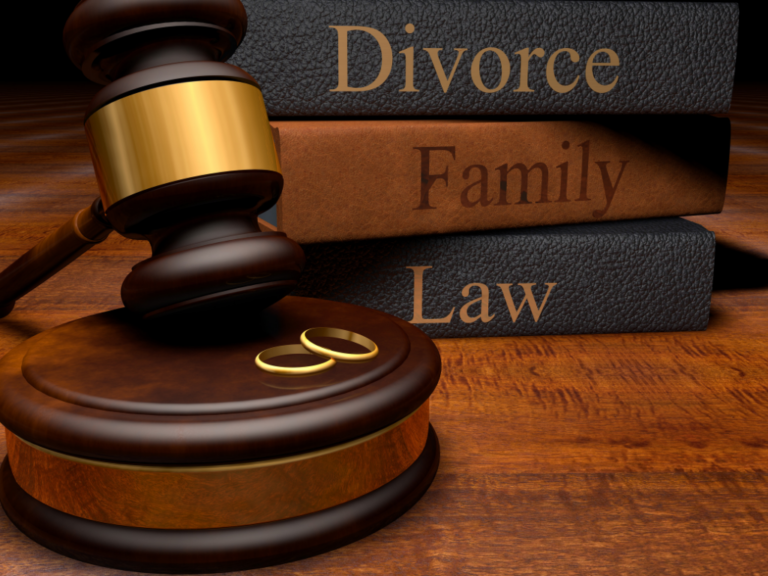Call us now:
When divorcing or after divorce, one of the issues that spouses are concerned about is determining the common property of the couple and the separate property of each party. In principle, the property that a husband or wife acquires before marriage is their separate property, and the property formed during the marriage is the common property of the couple. However, in some cases, determining common property or separate property can be challenging.

The spouses have an agreement on the property regime during the marriage period (pre-nuptial agreement).
If, before registering the marriage, the spouses have signed a written agreement on the property regime during the marriage period (also known as a prenuptial agreement), it shall be applied according to the signed agreement.
The spouses may agree on determining the property regime in the prenuptial agreement according to one of the following options:
1/ The property between husband and wife includes common property and the separate property of each spouse;
2/ The spouses have no separate property, and all the property acquired by the wife or husband before marriage or during the marriage period belongs to the common property of the spouses;
3/ The wife and husband have no common property, and all the property acquired by the wife or husband before marriage and during the marriage period belongs to the separate ownership of that person;
4/ Any other agreement.
The spouses do not have any agreement on the property regime
In case the spouses have not reached any agreement on the property regime during the marriage, the application of the property regime follows the law and is specified as follows:
Common property of the spouses:
1/ Property created by the spouses during the marriage.
Example: After registering their marriage, the spouses jointly purchase an apartment. The apartment, formed during the marriage, is considered the common property of the spouses.
2/ Income from labor, production, and business activities of either spouse during the marriage.
Example: The wife is a civil servant receiving a salary from the state budget. The husband contributes capital to a business venture with friends. In this case, both the wife’s salary and the husband’s profits are considered the common property of the spouses.
3/ Profits from the separate property of either spouse arising during the marriage.
4/ Other legal income during the marriage, including:
Bonuses, lottery winnings, subsidies (excluding subsidies, benefits for revolutionary contributors, and other property rights associated with family members).
Property established ownership rights for ownerless, sunk, hidden, dropped, forgotten items; lost livestock and poultry; underwater pets.
Other legal income.
5/ Property inherited jointly by the spouses during the marriage.
Example: After marriage, the husband’s parents pass away, leaving a will to divide a house for both spouses. The house is considered the common property of the spouses.
6/ Property gifted jointly to the spouses during the marriage.
Example: After marriage, the wife’s parents gift a house to both spouses. The house is considered the common property of the spouses.
7/ Other property agreed upon by the spouses as common property.
The agreement must be made in writing, and if the property belongs to a category requiring a specific form of transaction, the agreement must adhere to that form (notarization, authentication, etc.) for it to be valid.
8/ The right to use land acquired by the spouses after marriage (excluding the right to use land inherited separately, gifted separately, or used private property for transactions).
Example: After marriage, the spouses purchase a land plot, making it the common property of the spouses, unless one spouse can prove that this land was entirely purchased with their separate property.

Separate property of the husband and wife:
1/ Property that the husband or wife owns before marriage.
Example: Before getting married, the husband buys a piece of land. This land is considered the separate property of the husband.
2/ Property inherited separately by the husband or wife during the marriage.
Example: After marriage, the wife inherits property from her deceased mother. The inherited property is considered the separate property of the wife.
3/ Property gifted separately to the husband or wife during the marriage.
Example: After marriage, the husband receives a house as a gift from his parents. This house is considered the separate property of the husband.
4/ Property separately allocated to the husband or wife according to the agreement on the division of common property during the marriage, and the profits arising from that property.
Example: After some years of marriage, the husband and wife sign an agreement to divide their common property. According to the agreement, the husband receives shares in a company they invested in, and the wife receives a shared apartment. After the division, the shares become the husband’s separate property, and the apartment becomes the wife’s separate property.
5/ Property serving the essential needs of the husband or wife.
Example: Household items, mobile phones, etc.
6/ Property formed from the separate property of the husband or wife.
Example: During the marriage, the husband sells a piece of land that was his separate property before getting married and uses the proceeds to buy a car. The car becomes the husband’s separate property even though it was acquired during the marriage.
7/ Property rights regarding intellectual property objects.
Example: During the marriage, the husband composes a music piece that becomes popular. The earnings from allowing others to use the song, transferring copyright, etc., are considered the husband’s separate property.
8/ Property that the husband or wife establishes separate ownership rights according to a court judgment or decision of another competent authority.
9/ Subsidies, benefits received by the husband or wife according to the law on benefits for revolutionary contributors, and other property rights associated with family members.
Contact Us Now:
DCNH LAW
Address: 38B Tran Nhat Duat, Phuoc Hoa ward, Nha Trang city, Khanh Hoa province, Vietnam.
Phone: (+84) 343320223 – 974278893
Email: dcnh.law@gmail.com


